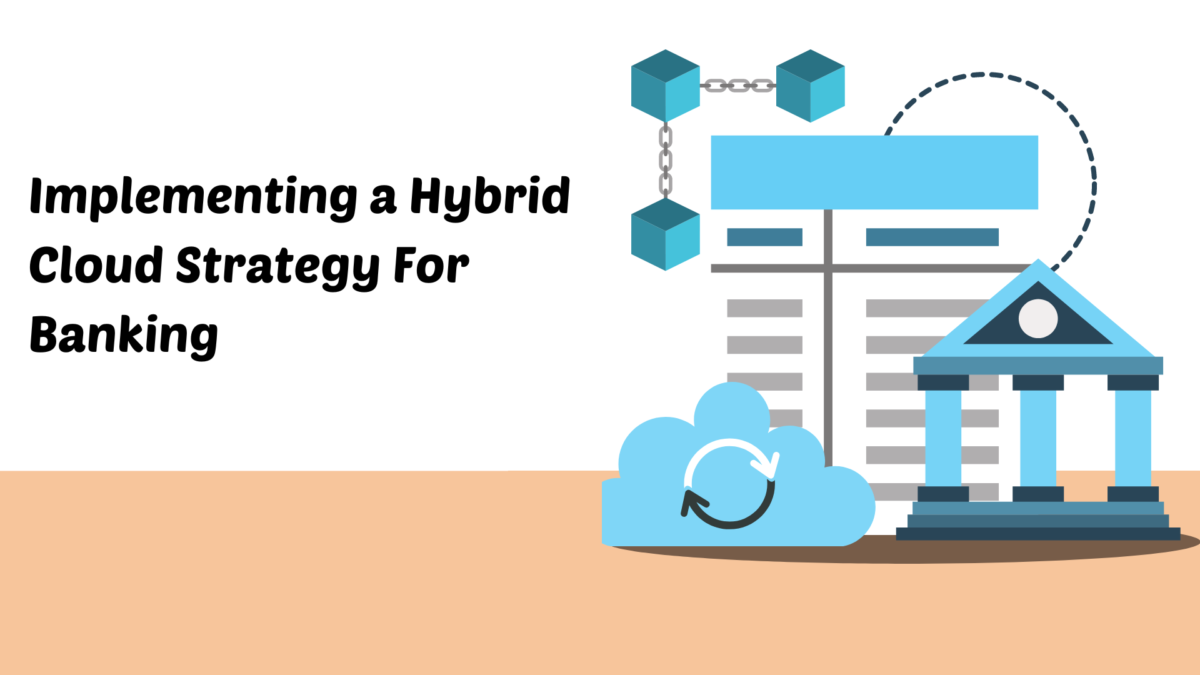Banking success is directly proportional to delivering personalized and satisfactory user experience. In the digital world, everything is data; it becomes challenging to fetch, collect, and filter an enormous amount of data while maintaining infrastructure security. Strategic hybrid cloud deployment ensures scalability, agility, and efficient infrastructure services that cater to modern banking customers’ demands and maintain a competitive edge. You must look for cloud consulting services to implement the right approach and understand the importance of a hybrid cloud. This blog briefly discusses how using a hybrid cloud can improve banking operations.
Traction of Hybrid Cloud in Banking
The Grand View Research says that the global cloud finance market will hit $100 billion by 2030 as more and more organizations want to leverage the comfort offered by cloud solutions. Organizations struggling with legacy systems wish to modernize and leverage advanced technologies and improved data security. Banking and financial businesses are ready to make significant investments in the cloud. The world’s largest cloud services provider, AWS, is already the most extensive and mature vertical. A hybrid cloud is a smart way to streamline operations and ensure business continuity.
Benefits of Hybrid Cloud Strategy for Banks
To process large amounts of data that meet regulatory requirements, fintech businesses need low-latency applications. These applications are required to perform tasks like loan automations, executing trades, and meeting customers’customers’ multichannel demands. Let’s understand the top five benefits of the hybrid cloud approach for banks:
Flexibility, Agility & Scalability
Hybrid clouds allow banks to expand computing capacity as per demand. High speed and more considerable power can increase banking operations’ efficiency. It becomes easy for banks to launch new products and speed up their go-to-market strategy.
Cost Optimization
Another primary reason for moving to the cloud is saving costs. Managing large data centers, infrastructure, and operations single-handedly is expensive. Collaborating with public cloud providers reduces capital investments, including license and storage costs. Additionally, cloud solutions allow you to pay as per your usage, which significantly saves time and money.
Enhanced Customer Experience
A hybrid cloud improves customer experience by providing personalized customer interactions. The success of ChatGPT is a prominent example. Hybrid cloud lets you interact directly with the customers via web and mobile hosted in the public cloud while keeping the crucial data in the private cloud. A hybrid cloud environment can also help with predictive analytics that can help you get customer behavior and pattern insights.
Improved Security & Compliance
The hybrid cloud offers fraud detection and regulatory compliance. It is highly secure, flexible, and provides enough computing power to meet demand. Furthermore, public cloud providers offer a range of security and services, for example- AWS firewall manager. They can also be extended to private cloud and integrated with on-premise security applications.
Also read — Healthcare and AWS: The Power of Cloud in Patient Care
Conclusion
Adopting a hybrid cloud has become essential to success in the banking and capital markets. Banking institutions and financial businesses are adopting hybrid cloud to become highly scalable. They support low-latency applications while reducing costs and offering robust security and access to new technology. Collaborate with a cloud consulting company to leverage the highest potential of hybrid cloud for banking operations.


